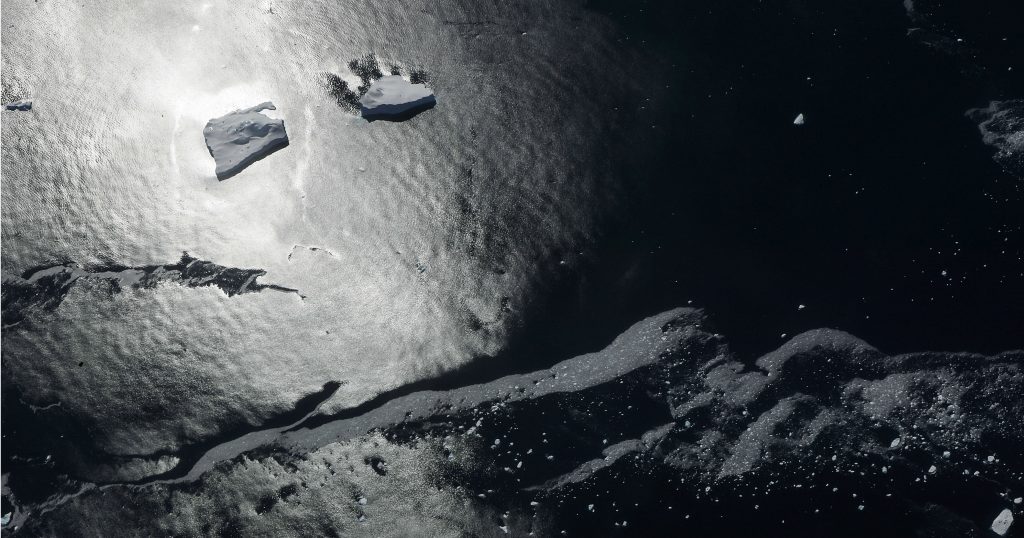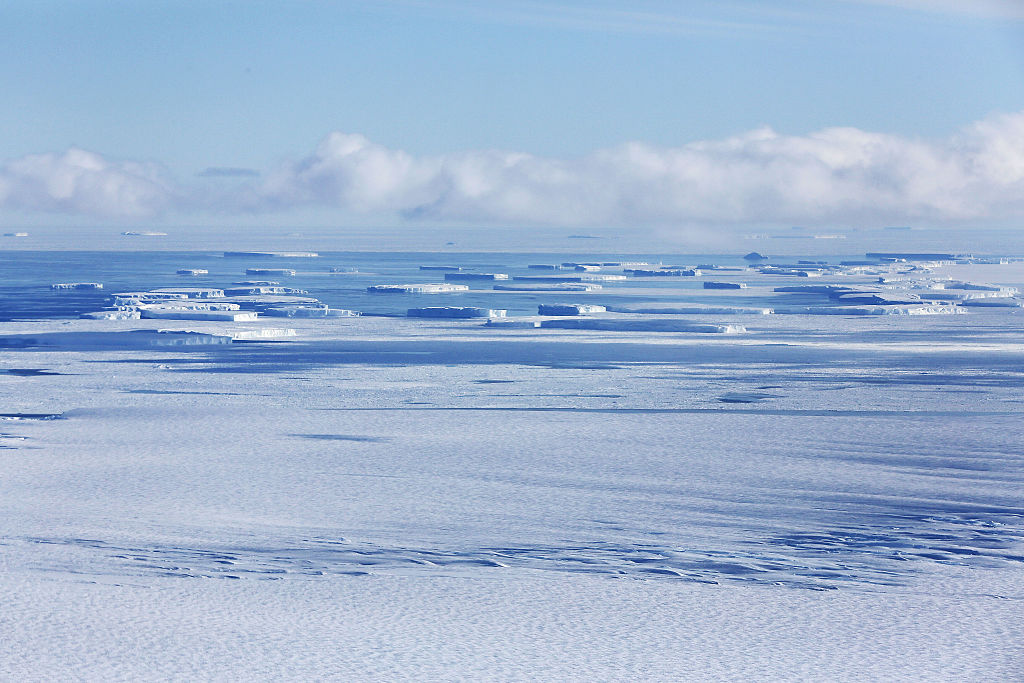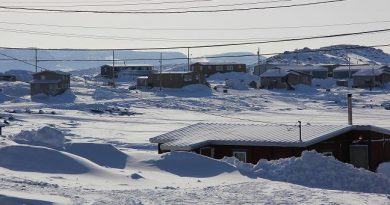West Antarctic Ice Sheet melt now unstoppable: study

(Mario Tama/Getty Images)
The rate of West Antarctic Ice Sheet melt now appears unstoppable regardless of how much fossil fuel consumption is curtailed, said a study published Monday.
“We find that rapid ocean warming, at approximately triple the historical rate, is likely committed over the twenty-first century, with widespread increases in ice-shelf melting, including in regions crucial for ice-sheet stability,” the authors say in the study.
“When internal climate variability is considered, there is no significant difference between mid-range emissions scenarios and the most ambitious targets of the Paris Agreement. These results suggest that mitigation of greenhouse gases now has limited power to prevent ocean warming that could lead to the collapse of the West Antarctic Ice Sheet.”
The research was published in the journal Nature Climate Change on October 23.
To do the study, researchers from the British Antarctic Survey and Northumbria University in England ran different simulations through a supercomputer.
The situations included medium and high carbon emissions scenarios as well as what would happen if global temperature rise stabilized at 1.5 C or 2.0 C.
‘We’ve lost control of melting of the West Antarctic Ice Sheet’
Their results showed that for this century, all scenarios—from mid-range emission outlooks to what would happen if Paris Climate Agreement targets were all met—showed “…significant and widespread future warming of the Amundsen Sea and increased melting of its ice shelves.”

The researchers said that even under an optimistic 1.5°C global temperature rise scenario, the rate of melting will triple its 20th-century pace.
“It looks like we’ve lost control of melting of the West Antarctic Ice Sheet,” lead author Kaitlin Naughten said in a statement. “If we wanted to preserve it in its historical state, we would have needed action on climate change decades ago.”
The West Antarctic Ice Sheet glaciers have enough ice to increase global mean sea level by 5.3 metres and is Antarctica’s main contributor to sea-level rise.
Prior modeling suggests that the warming of the Southern Ocean, notably in the Amundsen Sea area, is driving ice loss of the sheet.
Preparing for adaptation
The researchers say they hope their findings will help underscore the urgency for policy makers to implement climate adaptation measures.
“The bright side is that by recognising this situation in advance, the world will have more time to adapt to the sea level rise that’s coming,” Naughten said. “If you need to abandon or substantially re-engineer a coastal region, having 50 years lead time is going to make all the difference.
“We must not stop working to reduce our dependence on fossil fuels. What we do now will help to slow the rate of sea level rise in the long term. The slower the sea level changes, the easier it will be for governments and society to adapt to, even if it can’t be stopped.”
Comments, tips or story ideas? Contact Eilís at eilis.quinn(at)cbc.ca
Related stories from around the North:
Canada: Ice surviving Arctic summer hits low, implications for traditional harvesting, shipping, CBC News
Greenland: Arctic ice melt could put 1.5 million UK properties at flooding risk: report, Eye on the Arctic
Norway: Polar heat record. July average above 10°C, The Independent Barents Observer
Sweden: High risk of wildfires in many parts of Sweden, including North, Radio Sweden
United States: Bursting ice dam in Alaska highlights risks of glacial flooding around the globe, The Associated Press



